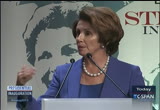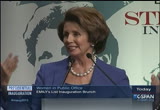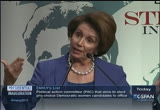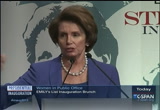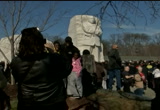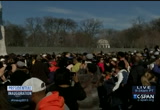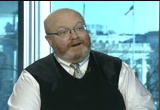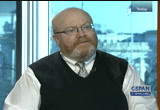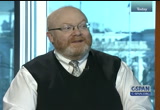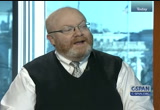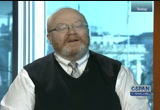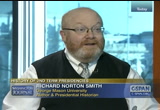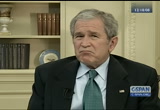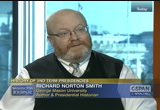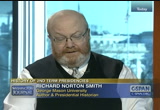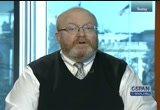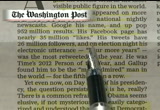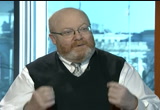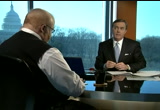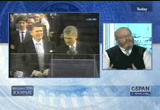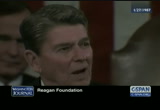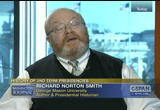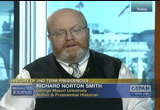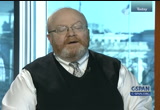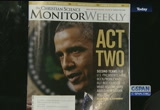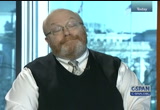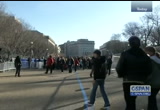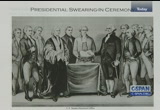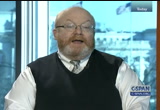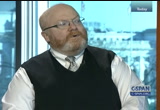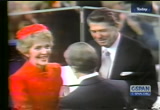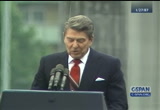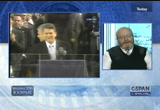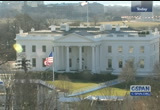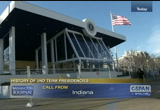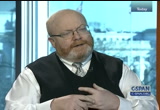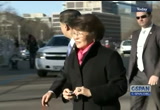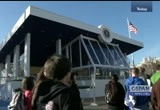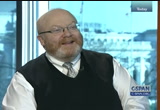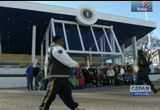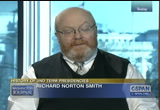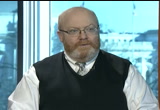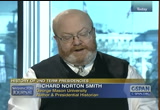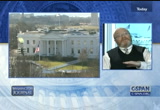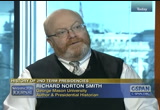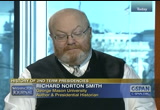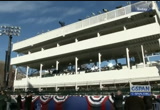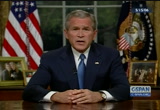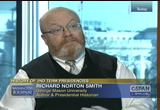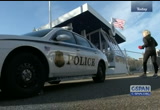tv Debt Deficit Reduction CSPAN January 20, 2013 12:30pm-1:20pm EST
12:30 pm
makinge of emily's list, people more aware that women vote, women win, and our issues come to the four -- every issue comes to the fore -- every issue is our issue. to be specific, because of emily's list and if you in this room, we will celebrate the 20th anniversary of family medical leave being enacted into law. madam secretary sebelius, a big deal for our country. ahead two your anniversary all ledbetter. -- also the two-year anniversary of ledbetter. -- lilly ledbetter. we will have to deal with issues such as the safety of our
12:31 pm
children. thank you, at emily's list, for making guns safety and women's rights part of your agenda. we will be dealing with issues that relate to violence against women. we need to pass that legislation. we have to deal with jobs. work that has been done on equity in the workplace. whether it is our jobs, the immigration issue that has a very impact, we have a full agenda, and women will have a full impact. strength in numbers, women leading the way. i was living the video. -- loving the video. we have 2014 coming up. we hope to elect many more women
12:32 pm
to the congress. if we did not have so many women in congress up till now, we would not have the first woman speaker of the house and. thank you to emily's list for that. listening to the shiloh baptist church choir and taking our lead from them, when i saw the video and heard them tell me that to 16, and our own hopes for two fourteen -- you ain't seen nothing yet. thank you, emily's list, for having women lead the way, for helping to change the playing field. a promise you this. but with emily's list is held, if we reduce the role of money and politics, overturn the citizens united and the rest, and increase the level of civility in politics, we will
12:33 pm
change the environment in which politics is conducted. we will elect many more women to public office. that is a very good thing for our country. thank you, emily's list. we are emily, and we ain't seen nothing yet. thank you all. [applause] >> a look at the jefferson memorial. president obama's public inauguration as tomorrow, which happens to be allocated. -- mlk day.
12:35 pm
>> large crowds gathered here this weekend at the immelt came memorial. we have live inauguration coverage starting tomorrow -- mlk memorial. we have live inauguration coverage starting tomorrow. next, a look at how u.s. presidents have feared his starkly in their second term. the specific -- have faced in their second term. host: want to welcome author and historian richard norton smith. the most memorable second term address was by abraham lincoln. guest: there are people who thinks that it outranks the gettysburg address. it is the greatest way sermon ever delivered in america.
12:36 pm
anyone who questions lincoln's spirituality as opposed to his denominational membership, read the second inaugural. it is a remarkable addressed for its eloquence. for the message. at that point, clearly the war is almost over. the obvious thing to do would- be self congratulations. guest: that is the magnanimous side. until the crime of human slavery was removed from the american landscape, the united states would not be right with god.
12:37 pm
it is an extraordinarily spiritual address. with malice toward none,lincoln was looking ahead to reconstruction. host: this morning in the "new york times," the historian one of a number of people offering advice for the president's second speech. guest: i would not offer advice to the president. the second inaugural is one of the more inaugurable addresses.
12:38 pm
fdr acknowledges that for all the progress made, remember the famous line -- clothed, ill fed. he was acknowledging unfinished business. host: as the author of the book "patriarch," he delivered the first second inaugural address. is it inaugurable? -- memorable? guest: he had a thin skin. he was not accustomed to the kinds of press attacks he was experiencing. second term in the first place. he was talked into it. he was actually resentful. it is the shortest inaugural address on record. it is fewer than200 words.
12:39 pm
was in the capital. basically called god to witness. if he failed to live up to the were be punishment for that. certainly posterity would. it was a strange speech. very personal, very revealing. host: richard norton smith has written a number of books. including "thomas e. dewey and his times." he is now working on a new book rockefeller. guest: they had a number of house. he had a place of his own in northwest washington. host: also affiliated with george mason university.
12:40 pm
we will take a look of what the president can expect in his second term. we have now had a period of a reagan, clinton, and bush. guest: this is the second time in our history when we have had three successive two-term presidencies. inaugural in a row. the only other time that century. three virginians, almost neighbors. jefferson, madison, and monroe. you're right. it is an interesting counterpoint to the polarization we talk about. host: i want you to listen to an interview we conducted on december 18, 2008 with outgoing president george w. bush.
12:41 pm
his words on being a unita, not a divider. -- uniter, not a divider. listen to what he said, also his body language. [video clip] >> you said, i am optimistic washington. i believe things happen for a reason. >> that was a hopeful person saying that. >> are you less hopeful? >> we work together, there were -- the tone changed some initially. we had no child left behind. some bipartisan accomplishmentssome people here in this town agenda.
12:42 pm
should. and it did not happen. terms. guest: president obama has said things better very similar. -- that are very similar. it is not just about washington. broader culture. we live in a polarized culture. we live in a culture that celebrates -- notoriety is the quickest ticket to 15 minutes in the 24 hour news cycle. you get noticed the more outrageous things you say, whether it is talk radio or print or on the web. the other enormous difference
12:43 pm
that contributes to this -- i do not know how you reverse it. except over time. 50 years ago, you had two political parties that were both appealing to the center. democrats had ted kennedy and hubert humphrey. they also had john stennis. republicans had barry goldwater, but they also had jacob javits. history. we now have -- we need a much in manyical party, and ways, that is the party we have. you can see the result of the party system we have now. host: a caller.
12:44 pm
caller: i am concerned about how history is going to deal with the fact that the senator mitch mcconnell and the senate and house republicans all stood up and said, we're going to stop this presidency. failed presidency. with that? why has the press and the media serious issue? it is almost like it is unpatriotic, totally unethical for them to do this. guest: it reflects the evolution of the political culture. the republican leader in the 1960's used to say, i am a man
12:45 pm
12:46 pm
guest: because it is an important point -- the first part of what you read, the extraordinary visibility, the immediacy, the fact the president -- 500 years ago, newspapers. they were not vivid to people. they did not come into our homes in the way the modern president does. it happened to ronald reagan, it happened to bill clinton,
12:47 pm
george bush. and that is, obama fatigues. three years from now, people will be writing columns about obama fatigue, just as they did about clinton fatigue and bush fatigue and reagan fatigue. franklin roosevelt only gave 30 fireside chats in 12 years. he understood instinctively the dangers of overexposure. he also controlled the media to an extent that modern presidents could not hope to. host: looking back, fdr broke the unwritten code of serving more than two terms. wetoday's modern age, could have more than two terms for any president?
12:48 pm
you worked for ronald reagan. if his health was better, of third term? guest: i doubt it. he talked about it after he left office. he was going to campaign for appeal of that amendment. he thought the american people should be able to vote for anyone wanted to vote for. it is very difficult to imagine after eight years of office -- we've used up our presidents. that is why this string of two- term presidents is really so unusual. we have a string of one-term presidencies before that. that became the norm.
12:49 pm
host: let me share with ronald reagan said in january of 1987. his state of the union address. [video clip] >> i have one major regret. i took a risk with our action in regards to iran. it did not work. for that, i accept full responsibility. the goals were worthy. it was not wrong to try to save lives. certainly, it was not wrong to try to secure freedom for our citizens held in barbaric captivity. [applause] but we did not achieve what we wished, and serious mistakes were made in trying to do so. this. i will take whatever action is called for. host: a look at second terms,
12:50 pm
nixon and watergate and the iran controversy with ronald reagan. guest: fdr coming off the greatest victory in history stumbled badly when he tried to pack the supreme court, and tried to purge conservatives in the south from democratic primaries. you could argue lyndon johnson interpreted his mandate in 1964 as a blank check in vietnam. that is one of the great dangers that confronts presidents. term curse. i think there are a number of factors. i think the word mandate should dictionary. in a polarized area, presidents
12:51 pm
have a tendency to over- interpret. -- over-interpret the mandate they have been given. host: let me add this iconic photograph of president bill clinton, hugging monica lewinsky. face impeachment. guest: we have been told by people who should know that president clinton was willing to capital he had. he won a significant, decisive victory over bob dole in 1996. he was prepared to move on entitlements, the so-called third rail of american politics, which would have required him spending a lot of political capital.
12:52 pm
then when the whole scandal broke, that was no longer a viable option. host: let me share with you this story from "the washington post." there is one sentence from this article i want you to react to. mcdonough is seen as an obama an eye on burnishing his legacy. guest: i think the press maybe has a tendency to exaggerate a little bit, the tendency to say about legacy.
12:53 pm
that is another factor that contributes to the so-called second term curse. the very moment you are celebrating whatever mandate you have for reelection, you realize you're also a lame-duck. in this town, that means with every passing day you have that much less power and influence. presidents in their second term have a very narrow window of big things. significant. listeners. -- that is what makes this year very significant. host: we want to welcome our radio listeners. we're talking with author, historian richard norton smith. the cover story of "christian science monitor" - a look inside as some of the more famous
12:54 pm
second terms richard norton smith is talking about. a call from the bronx, new york. caller: if the losing presidential candidate is not an office holder, does he get to participate in the inauguration? host: we know that mitt romney will not be here tomorrow, neither president bush. guest: president bush 41 is just out of the hospital. i wonder if jimmy carter -- as well as bill clinton. -- host: he will be in attendance, as well as bill clinton.
12:55 pm
guest: that is a relatively new tradition. herbert hoover was invited to the kennedy inaugural in 1961. he was a very close friend to the president's father. the weather was so bad that he really could not get here. but he intended to be here. host: ronald reagan had the warmest and coldest inauguration days. guest: the great story about the weather -- william howard taft, who had this self deprecatory sense of humor -- there was a blizzard. he had too much sense of the ridiculous to be a politician. he said, i always thought it would be a cold day when i would be elected a president of the united states. host: how long was henry harrison's speech?
12:56 pm
guest: almost two hours. there have been efforts recently effect. -- recently to debunk teh direct auscause and effect. i do not know they have been successful. host: a caller on our independent line. caller: i want to bring attention to george washington's first inauguration. it was at a little church called st. paul's chapel. that is where george washington adjourned congress during the inauguration, to go down there and pray. during that prayer meeting, george washington asked for the blessings of god. the little chapel is located on the same territory where the world trade center was destroyed. i thought that was interesting,
12:57 pm
because washington said if we ever turned our back on god, god would lift his hand of protection and prosperity from this nation. just a few years ago, washington's monument there was damaged so badly that we can no longer go into it. do you know where his second inauguration was? guest: congress hall, in philadelphia. you can visit it. host: under article 2, section 1 of the constitution, the oath of office is listed in the constitution. "so help me god" is not. guest: that's right. they're still arguing about whether george washington said it or not.
12:58 pm
host: why are they arguing? guest: various eyewitness accounts. various eye witness accounts. a bunch of people report the same event. host: calvin coolidge was sworn in in 1923 and had a second ceremony just a few blocks from the white house at the willard hotel. our guest is richard norton smith. we're looking at presidential second terms. one of the issues remembered by ronald reagan was dealing with the soviet union. explain the political situation in washington, d.c. that he was facing. guest: people who think of the reagan second term within the broad definitions of the curse, they refer to it as [indiscernible].
12:59 pm
tax reform, the elimination of an entire class of nuclear weapons. reagan and his first term had spoken about the evil empire. he said later on the soviet leaders kept a dying on him. -- dying on him. one thing led to another. there had been no discernible progress. i do not think many people on january 20, 1981 would have anticipated ronald reagan's greatest historical accomplishment would be significant arms control. not just slowing the rate of increase in nuclear arms, but actually doing away with the whole class in what became known as the inf treaty.
1:00 pm
host: a speech in june of 1987 in berlin. [video clip] >> we welcome change and openness. we believe that freedom and security go together. the advance of human liberty, the advance of human liberty can only strengthen the cause of world peace. there is one sign that the soviets can make that would beunmistakable, that would -- be unmistakable, that would advance dramatically the cause of freedom and peace. if you seek peace, if you seek peace and prosperity, if you seek liberalization, come here
1:01 pm
to this gate. open this gate. mr. gorbachev, tear down this wall. [applause] host: why was that speech soguest: that was vintage reagan. reagan going to the heart of the matter, using plain language. anyone could understand it. what he regarded was the moral issue involved, but it coexisted with this desire to find awe do not know to this day -- we may never know all of the influences, all of the factors
1:02 pm
that shape the reagan's attitude, evolving attitudei would not underestimate the role of nancy reagan, who was the ultimate protector about his legacy and who wanted that legacy to include the role of peacemaker. host: as the head of the reagan library, you had a chance to sit ronald reagan in the early in office? guest: he loved to tell stories. washington stories. he told lots of hollywood stories, lots of dixon, illinois stories. after his illness was diagnosed, you could almost measure his progress because the
1:03 pm
repertoire of stories narrowed. at the end, i am told he would still talk about -- the thing he was proudest of was a lifeguard in dixon, illinois saving 77 lives. host: caller from silver lake, illinois. caller: i have a few comments to make. all this time, there is a split in the united states on political parties. big divide?
1:04 pm
i do not see any future of obama trying to get with the other party. he wants to heckle them, probe them like you would a mad cow orhost: is it more partisan than it has been in the past? it feels. you cannot escape it. the nature of cable tv, which is enormously significant disproportionate to its audience in studying the tone for the debate. differences.
1:05 pm
it is all about conflict. everything else contributes to the sense that people have that we are more divided than we have ever been before. george washington and john adams, a mob gathered outside washington's homa, denouncing his neutrality. host: we're looking at the veterans affairs secretary. the military, department of defense playing a big role in tomorrow's ceremony.
1:06 pm
guest: dwight eisenhower took very personally nixon's defeat. he said he knew how the condemned man felt, watching the scaffolding being built. host: people are talking about vice president biden in 2016. is that the measure of a successful presidency? guest: it is, but history argues that the last time that happened install martin van buren. arguably, americans were voting for a third reagan term albeit
1:07 pm
kinder and gentler. one of the problems for the first president bush was, he spent the first four years with the true reaganites looking over his shoulder. it complicated his political host: during his acceptance speech in 1988, he talked about a kinder, gentler nation, nancy reagan said, kinder or gentler than what? that is how the story goes. [laughter] a caller from hastings, england. welcome to the program.
1:08 pm
caller: the speech that in winston churchill made, i want to quote part of that. it relates to what the gentleman has just been talking about, technology. it said, "the stone age may science, and what might now destruction." i think he is talking about the weapons and guns we have now, also the attacks that hackers could make about the defense of america. if they did dysfunctionize the
1:09 pm
1:10 pm
host: part of a cover story, looking at the president's second term, this focusing on foreign policy and and domestic issues. $17 trillion debt. he is facing a pullout from afghanistan and our role in the world. guest: it is interesting. leadership, what does that mean. if you go back on the eve of the world war, the number of foreignit was well under 100.
1:11 pm
the cold war has had an enormous transforming impact. dwight eisenhower cited all of this in his famous farewell address. i think there is a legitimate that is as old as the republic. washington's generation believed united states would be an asylum for the world's oppressed. bit embeddedit was a place to which victims of liberty. there was no sense that we were values on the rest of the world.
1:12 pm
host: this question, in case youwhy is the president having two swearing-in ceremonies? according to the inaugural committee, it has happened on six previous occasions. one today at the white house, one tomorrow at the capitol. guest: it was at the height of the war. his health was failing. they did away with most of the pomp, and had the ceremony on the grounds of the white house.
1:13 pm
line. caller: will george w. bush be remembered as a good president, or a bad president? do you think president bush hurt the republican party? bigger question to the pundits. i am not a pundit. i do not mean to be evasive. as a historian, the world is still too close to the bush years. harry truman was unable to get
1:14 pm
insurance, and yet we credit him with planting the seed. it set in motion events leading to the current health care plan. george w. bush spoke about the need for immigration reform. he also talked about privatizing parts of social security, more controversially. we will not know for some time the course of those issues. my hunch is, he will be ranked higher than he was on leaving office immediately. that is often the case with former presidents.
1:15 pm
favorable, unfavorable ratings that show in the four years he has been out of office that his approval ratings have increased fairly substantially. host: we are less than 100 days presidential library. this is exactly what the president will be looking at across pennsylvania avenue from the reviewing stand. it is the riser. all cameras will be focused on the reaction the president is giving to the floats and military parades. you mentioned the speech by george w. bush. this is from may 2006.
1:16 pm
[video clip] >> tonight i want to speak directly to members of the house and senate. an immigration reform bill needsall elements of this problemthe house has passed an immigration bill. the senate should act by the end of this month, so we can work out the differences between the sign into law. america needs to conduct this reason, and a respectful tone. all this need to keep some things in mind. we cannot build united country by inciting people to anger, or exploiting the issue of immigration for political gain.
1:17 pm
real lives will be affected by our debates and decisions. every human being has dignity citizenship papers say. host: you hear what the president said six years ago. a couple of campaigns have been held since then. most noticeably what mitt romneyguest: there is a sense that the election returns have consequences. it is transparently in the self interest of republicans, who vote among the fastest growing block of american voters, latino voters. it is certainly much more favorable to immigration reform
1:18 pm
than when he made that speech six years ago. host: "the washington post" has this piece. one sentence i want to get your reaction to. he talks about some of the executive orders put in place. guest: presidents are rated for their ability to overcome great obstacles. traditionally, that means how they manage a crisis. an economic depression, a war.
1:19 pm
generated. we have generated a political system that is rewarded for preventing things from happening, rather than makingapart from individual issues, whether it is a gun safety or the economy or foreign policy, the challenge is to overcome those obstacles that the of them. host: a call from cincinnati, caller: in a country where even citizens of this country and now we have a black president, i we have a black president, i think we've come a
213 Views
IN COLLECTIONS
CSPAN Television Archive
Television Archive  Television Archive News Search Service
Television Archive News Search Service 
Uploaded by TV Archive on

 Live Music Archive
Live Music Archive Librivox Free Audio
Librivox Free Audio Metropolitan Museum
Metropolitan Museum Cleveland Museum of Art
Cleveland Museum of Art Internet Arcade
Internet Arcade Console Living Room
Console Living Room Open Library
Open Library American Libraries
American Libraries TV News
TV News Understanding 9/11
Understanding 9/11